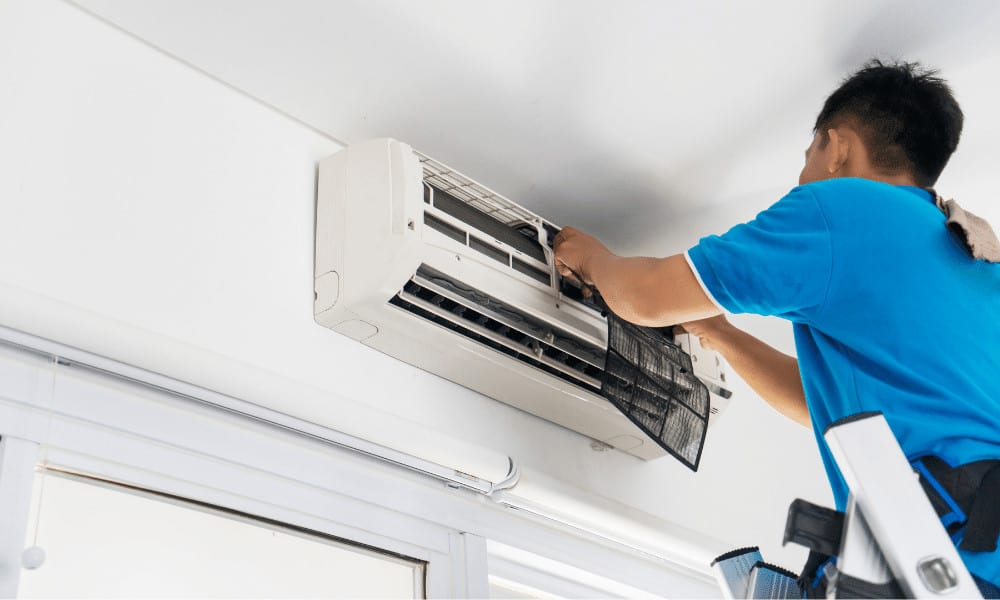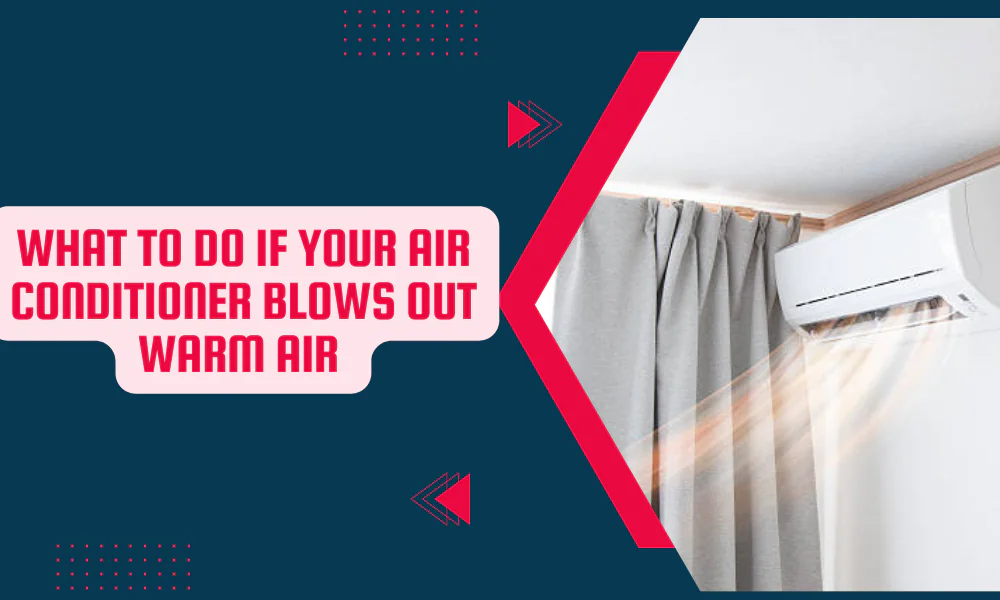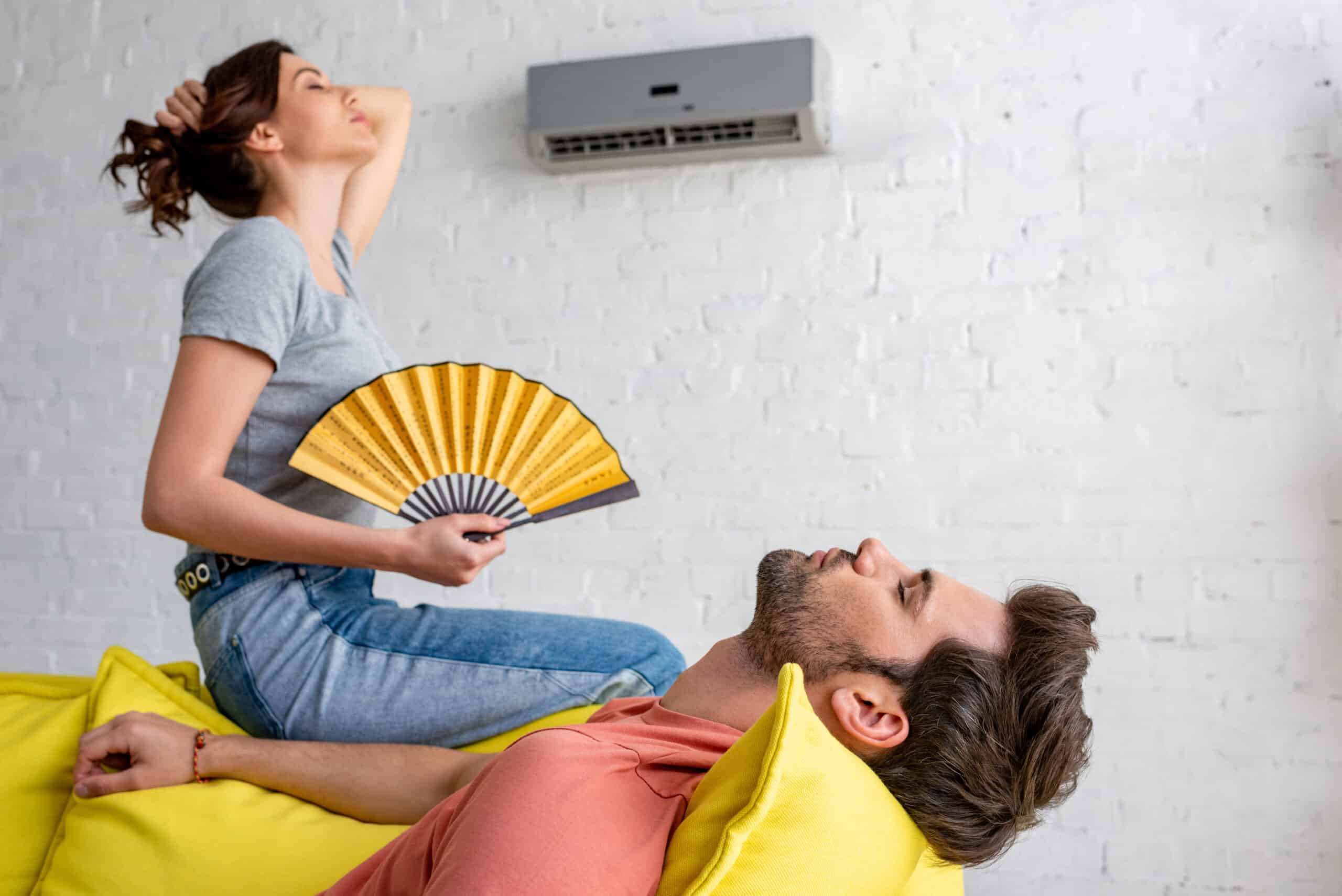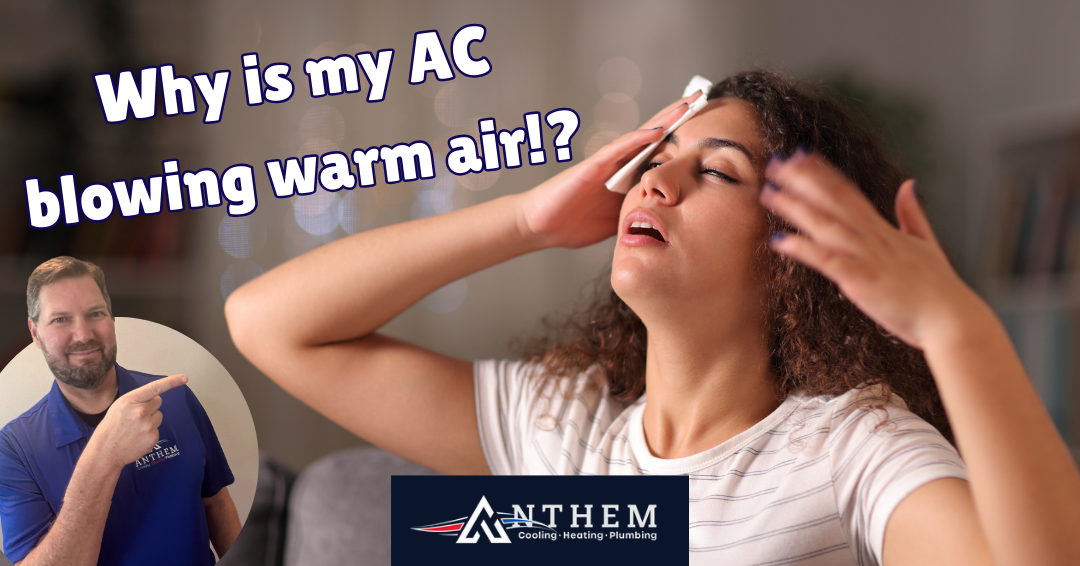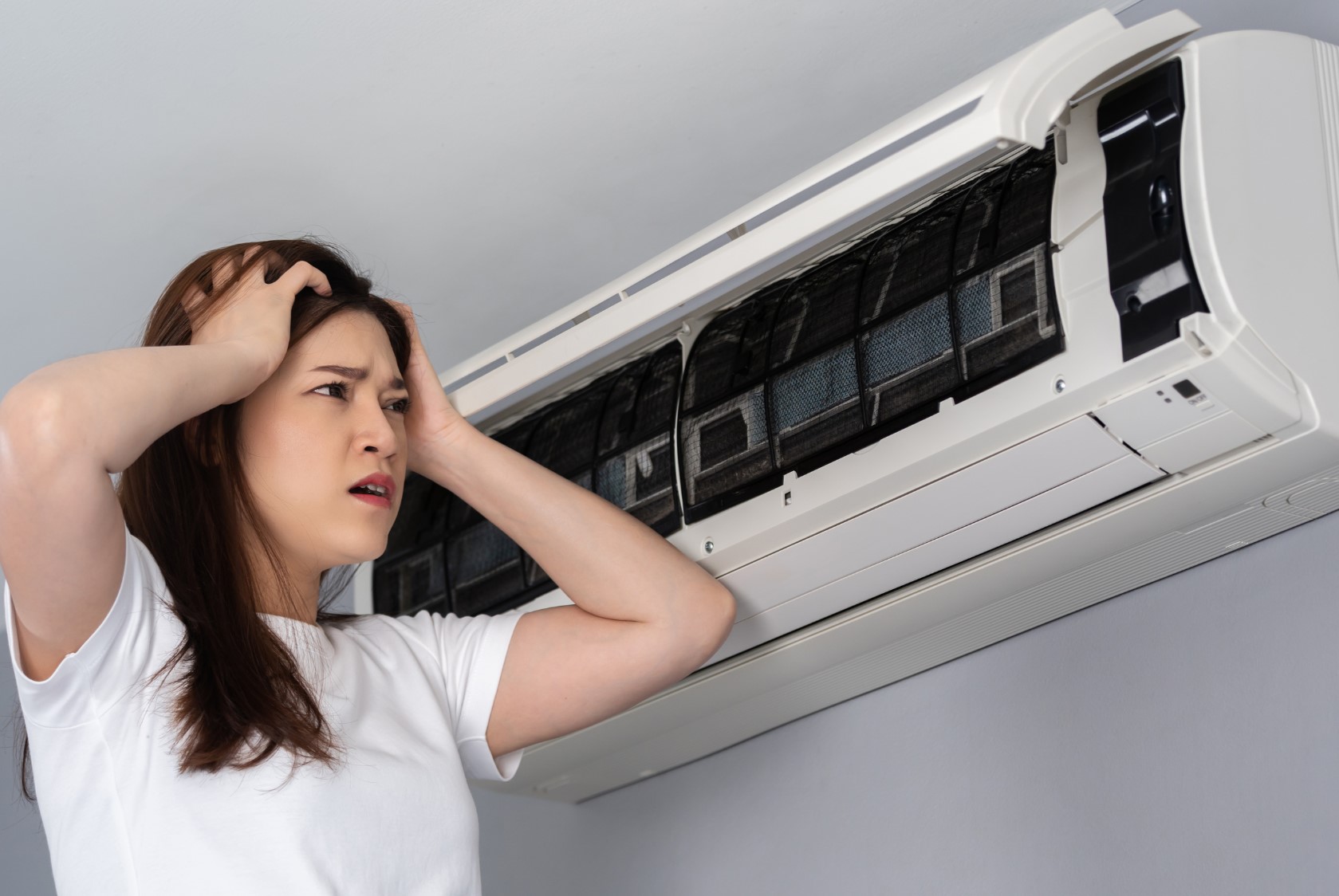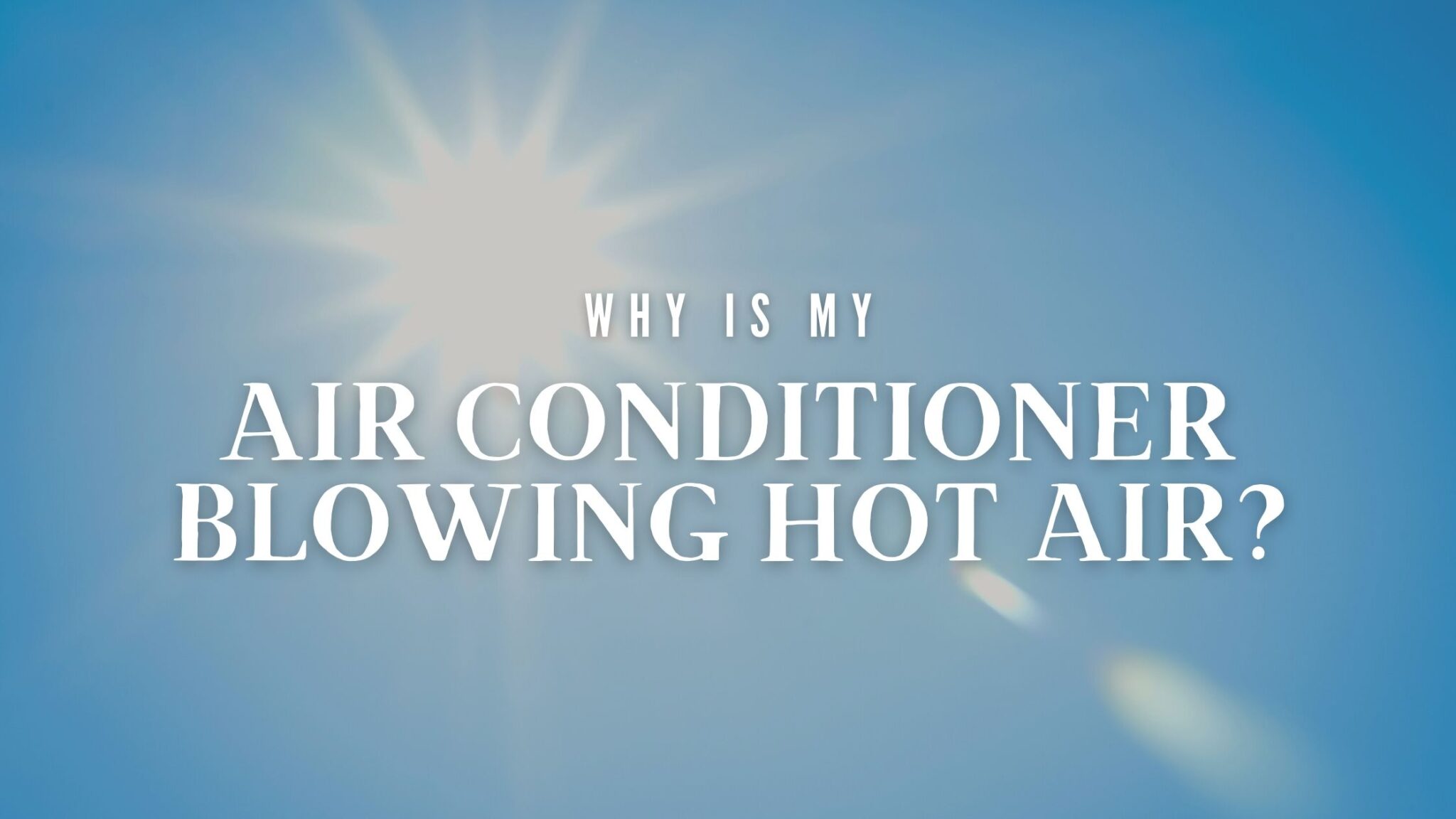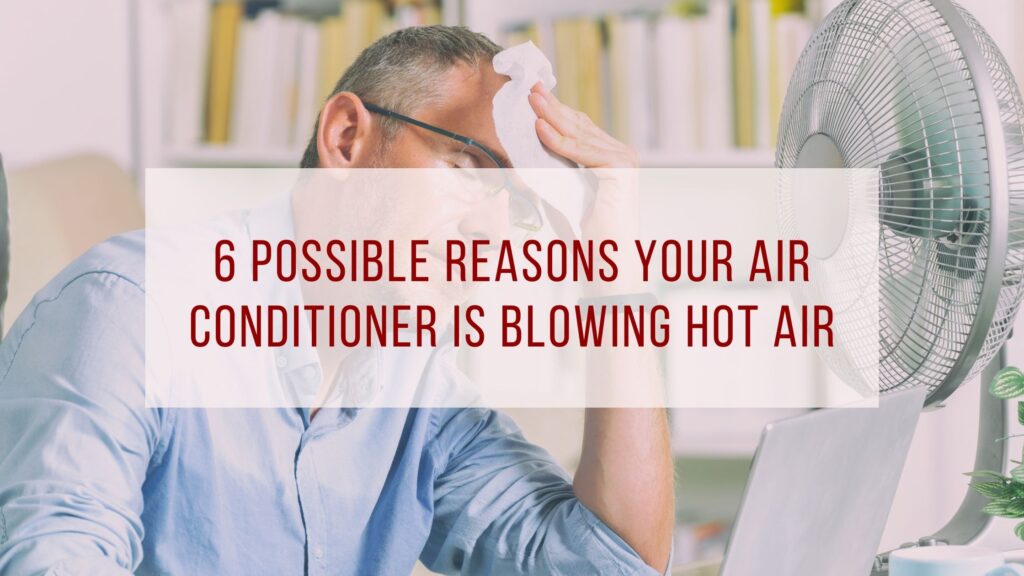Why Does My Air Conditioner Blow Hot Air

Why Is My Air Conditioner Blowing Hot Air? A Comprehensive Guide
Few things are more frustrating than expecting a blast of cool air on a sweltering day, only to be met with warm or even hot air coming from your air conditioner vents. This issue is surprisingly common, and pinpointing the exact cause requires a systematic approach. This guide will walk you through the most likely culprits, offering practical solutions for homeowners, HVAC technicians, and facility managers.
Refrigerant Leaks: The Cooling System's Lifeblood
Refrigerant is the chemical substance that absorbs heat from your home's air and releases it outside. Think of it as the lifeblood of your cooling system. When refrigerant levels are low due to a leak, your air conditioner's ability to cool effectively diminishes significantly. Eventually, it will only blow warm air.
Symptoms:
- Weak airflow from vents
- Air feels warm, not cold
- Ice buildup on the evaporator coil (indoor unit) or the refrigerant lines
- Hissing or bubbling sounds near the air conditioner
- Higher-than-usual energy bills
Solutions:
- For Homeowners: Do not attempt to handle refrigerant yourself. It's a regulated substance and requires specialized equipment for safe handling. Call a licensed HVAC technician.
- For HVAC Technicians: Use a refrigerant leak detector to pinpoint the source of the leak. Repair the leak (e.g., braze a copper line, replace a fitting). Evacuate the system and recharge it with the correct type and amount of refrigerant, according to the manufacturer's specifications. Older systems may use R-22 refrigerant, which is being phased out, requiring alternatives like R-410A. Newer systems use even more environmentally friendly refrigerants.
- For Facility Managers: Implement a preventative maintenance program that includes regular refrigerant level checks. Track refrigerant usage to identify potential leaks early. Consider upgrading older, leaking systems to newer, more efficient models with better leak detection features.
Compressor Problems: The Heart of the System
The compressor is the workhorse of your air conditioning system. It circulates the refrigerant and pressurizes it. If the compressor fails, the entire cooling process grinds to a halt. Compressor failure is often a sign of a serious problem and can be costly to repair.
Symptoms:
- Air conditioner runs but doesn't cool
- Loud or unusual noises coming from the outdoor unit (buzzing, grinding, or clicking)
- Circuit breaker tripping frequently
- Compressor not turning on at all
Solutions:
- For Homeowners: Turn off the air conditioner and call a qualified HVAC technician immediately. Compressor issues often require professional diagnosis and repair or replacement.
- For HVAC Technicians: Diagnose the compressor failure using a multimeter to check for electrical continuity and voltage. Inspect the compressor for physical damage. If the compressor is faulty, consider the age and condition of the entire system. Replacing the entire outdoor unit may be more cost-effective in the long run. Evaluate compressor options like scroll compressors, which are more efficient than reciprocating models.
- For Facility Managers: Implement a regular maintenance schedule that includes checking the compressor's operating parameters (voltage, current, temperature). Consider installing a soft starter to reduce stress on the compressor during startup, extending its lifespan. Monitoring vibration can also indicate potential compressor problems early.
Dirty Air Filter: Restricting Airflow
A clogged air filter is one of the most common causes of poor air conditioning performance. A dirty filter restricts airflow, forcing the system to work harder and reducing its ability to cool effectively. This can also lead to ice buildup on the evaporator coil.
Symptoms:
- Weak airflow from vents
- Air feels warm
- Ice buildup on the evaporator coil
- Higher energy bills
- Dust and debris accumulating in the air
Solutions:
- For Homeowners: Check your air filter monthly and replace it when it's dirty. A good rule of thumb is to replace it every 1-3 months, depending on usage and the type of filter.
- For HVAC Technicians: Remind customers about the importance of regular filter replacement during service calls. Offer filter replacement services as part of your maintenance packages. Consider recommending high-efficiency particulate air (HEPA) filters for improved air quality, especially for customers with allergies or respiratory issues.
- For Facility Managers: Implement a schedule for regular filter replacement based on the building's occupancy and air quality. Use a filter monitoring system to track filter pressure drop and schedule replacements proactively. Educate building occupants about the importance of keeping vents clear of obstructions.
Dirty Condenser Coils: Impeding Heat Transfer
The condenser coil is located in the outdoor unit and is responsible for releasing heat from the refrigerant. If the coil is covered in dirt, leaves, or debris, it can't efficiently release heat, causing the system to work harder and reducing its cooling capacity.
Symptoms:
- Air conditioner runs but doesn't cool effectively
- Outdoor unit runs constantly
- Higher energy bills
- Overheating of the compressor
Solutions:
- For Homeowners: Clean the condenser coil regularly with a garden hose. Be gentle and avoid bending the fins. Turn off the power to the unit before cleaning.
- For HVAC Technicians: Use a coil cleaner specifically designed for air conditioners. Ensure the coil is thoroughly rinsed after cleaning. Inspect the coil for bent fins and straighten them with a fin comb if necessary.
- For Facility Managers: Schedule regular condenser coil cleaning as part of your preventative maintenance program. Ensure that the area around the outdoor unit is clear of vegetation and debris. Consider installing a coil guard to protect the coil from physical damage.
Ductwork Issues: Leaks and Blockages
Leaky or poorly insulated ductwork can result in significant energy loss and reduced cooling efficiency. Conditioned air escapes before it reaches the intended rooms, causing the air conditioner to work harder to maintain the desired temperature.
Symptoms:
- Uneven cooling throughout the house
- Certain rooms are warmer than others
- Higher energy bills
- Dust and debris near ductwork
- Whistling sounds coming from ductwork
Solutions:
- For Homeowners: Seal any visible ductwork leaks with duct tape or mastic sealant. Insulate exposed ductwork in unconditioned spaces (attics, crawl spaces). Consider having your ductwork professionally inspected and sealed.
- For HVAC Technicians: Perform a duct leakage test to identify and quantify ductwork leaks. Use mastic sealant and duct tape to seal leaks. Insulate ductwork with appropriate insulation materials. Offer duct cleaning services to remove dust and debris.
- For Facility Managers: Implement a regular ductwork inspection and maintenance program. Use infrared cameras to identify areas of heat loss. Ensure that ductwork is properly insulated and sealed. Consider upgrading to a more efficient ductwork system.
Thermostat Problems: Miscalibration and Settings
A malfunctioning or incorrectly set thermostat can prevent the air conditioner from operating properly. The thermostat controls the on/off cycles of the air conditioner, and if it's not working correctly, the system may not turn on or off as needed.
Symptoms:
- Air conditioner not turning on or off
- Incorrect temperature readings
- Air conditioner cycles on and off frequently
- Warm air blowing when the thermostat is set to cool
Solutions:
- For Homeowners: Check the thermostat settings and ensure it's set to "cool" and the desired temperature. Replace the thermostat batteries if necessary. Consider upgrading to a programmable thermostat for better energy efficiency.
- For HVAC Technicians: Calibrate the thermostat using a reference thermometer. Check the wiring connections to the thermostat. Replace the thermostat if it's faulty. Explain the features and benefits of different thermostat options to customers. Consider smart thermostats with remote access and energy monitoring capabilities.
- For Facility Managers: Implement a regular thermostat inspection and calibration program. Ensure that thermostats are located in areas where they accurately reflect the room temperature. Consider using a building automation system to control thermostats and optimize energy efficiency.
Capacitor Failure
Capacitors provide the necessary jolt of electricity to start and run the motors in your AC unit (the fan motor and the compressor motor). When a capacitor fails, these motors may not start or run properly, leading to warm air.
Symptoms:
- Humming noise from the outdoor unit but the fan doesn't turn.
- The AC unit struggles to start.
- The AC unit shuts down prematurely.
Solutions:
- For Homeowners: Do not attempt to replace capacitors yourself. They store an electrical charge and can be dangerous. Call a qualified HVAC technician.
- For HVAC Technicians: Use a multimeter to test the capacitor's capacitance. If the capacitor is outside of its specified range (usually printed on the capacitor), replace it with a capacitor of the same voltage and capacitance. Always discharge the capacitor before handling it.
- For Facility Managers: Include capacitor testing as part of your preventative maintenance. Replacing capacitors proactively can prevent more significant motor failures.
Cost, Efficiency, and Lifespan Considerations
When diagnosing and repairing air conditioning problems, it's important to consider the age and condition of the system. A system that is nearing the end of its lifespan may require frequent repairs, making replacement a more cost-effective option. Newer air conditioning systems offer significant improvements in energy efficiency, which can result in lower energy bills. Seasonal Energy Efficiency Ratio (SEER) ratings are a measure of cooling efficiency, with higher ratings indicating greater efficiency. Consider the payback period of a new system based on energy savings. The lifespan of a typical air conditioning system is 10-15 years, but proper maintenance can extend its life.
By understanding the common causes of warm air from your air conditioner and implementing appropriate solutions, you can ensure a comfortable and energy-efficient home or building. Remember to prioritize safety and consult with qualified HVAC professionals for any complex repairs or maintenance.

